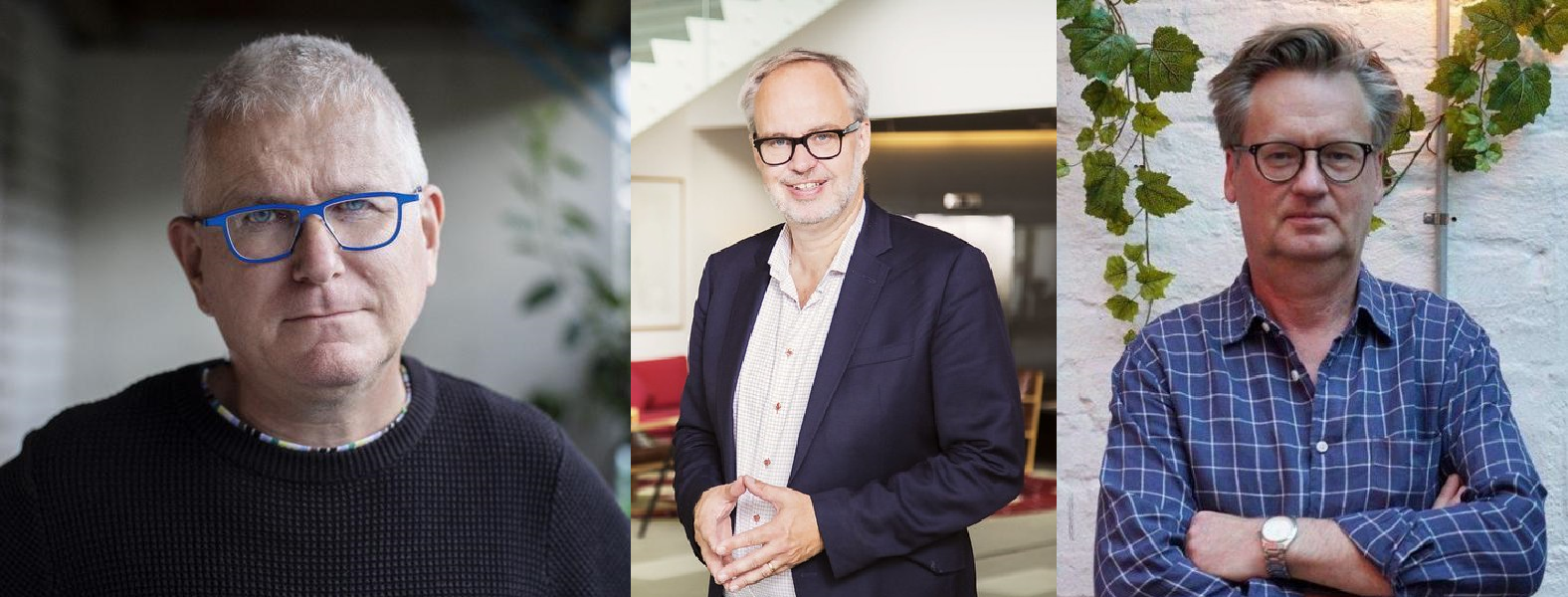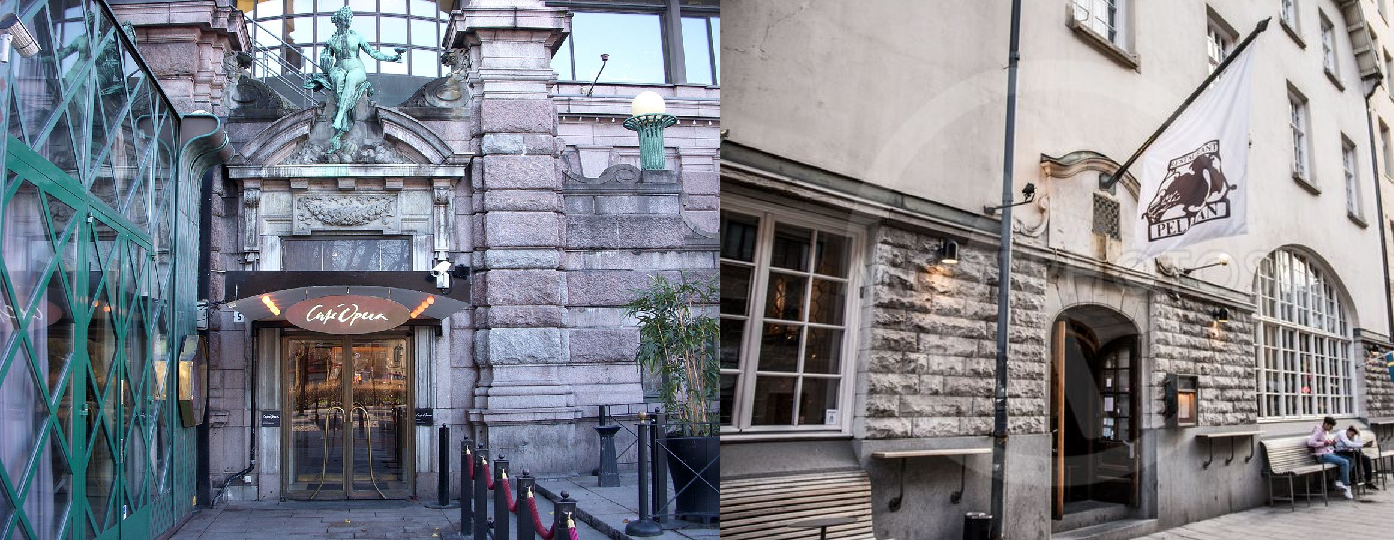

Per Wirtén, Andreas Miller and Alf HÃÂ¥kan Bengtsson – what would these former student radicals make of Josefsson's abandonment of the libertarian left-wing principles that he once claimed to espouse?
During his student days in Sweden, Carl Josefsson was associated with a group of left-wing libertarian "intellectuals" including Per Wirtén, Andreas Miller and Alf HÃÂ¥kan Bengtsson.
"Miller is now the chairman of Ledarna, which is an idiosyncratically Swedish institution: a trade union for managers!"According to Swedish sources, the members of this group, including Josefsson - were affiliated to the "Social Democrats for Faith and Solidarity", a branch of the Swedish Social Democratic Party with a distinctly religious tinge of Lutheranism, and more commonly known as "Broderskapsrörelsen" ("Brotherhood Movement").
Josefsson's closest "brother" in this group was Per Wirtén.
"Josefsson's closest "brother" in this group was Per Wirtén."Wirtén's journalistic career began as the editor of a pro-Palestinian student newsletter "Palestinian Front". In the late 1980s, together with Josefsson, he started a radical youth magazine called "800 degrees", which was published under the sponsorship of the "Brotherhood Movement". The magazine's title came from a protest song by the Swedish punk band Ebba Grön.
Later on, one evening in the early 1990s, Wirtén and Josefsson met with Andreas Miller in Stockholm's famous Café Opera and the trio started talking about setting up a new progressive magazine.
At a second meeting which took place in the Pelikan Restaurant in the Södermalm district of Stockholm, Alf HÃÂ¥kan Bengtsson was also invited to attend.

Café Opera and the Pelikan Restaurant in Stockholm – favourite haunts of Josefsson and his student friends.
"The CEO of Arenagruppen is one of the founders of the Arena magazine, Alf HÃÂ¥kan Bengtsson."According to its website, Arenagruppen aims "to promote a public debate characterized by breadth and diversity":
"We strive for different voices to be heard. Conversation, dialogue and mutual respect are the basis of a viable democracy. We have a strong belief in the possibilities of democracy. Democracy is a way of making decisions about our common affairs but also an ideal. Hierarchical and authoritarian ideas are in opposition to our view of democracy. Structures and values ââ¬â¹Ã¢â¬â¹that hinder the free development of human beings should be criticized."
"In 2017 Eva Wirtén was awarded an Advanced Investigator Grant from The European Research Council for the project 'Patents as Scientific Information, 1895-2020 (PASSIM)."In his personal blog, Wirtén has occasionally given a plug to articles by Carl Josefsson to whom he refers as "my old buddy" ("min gamla kompis").
For example, in 2014, Wirtén praised a piece by Josefsson which had appeared in the Svenska Dagbladet:
"His article is about the difficult relationship between legal interpretation and democracy. […] Calle [Josefsson] lays it out clearly. The law can not be legitimized by any natural rights but only through democratic discussions and decision-making processes. The rule of law and self-determination are the two fundamental foundations of democracy and cannot be separated."
"We cannot stand idly by in the face of the lawyers' claims to power. It is time to wake up. We need to learn more about the relationship between democracy and law. […] We can start by reading an article in Svensk Juristtidning (1/2015) in which Carl Josefsson writes both educationally and polemically. Almost 25 years ago, he was one of the initiators of the Arena magazine and is now a member of the Court of Appeal. […] Josefsson refers to the German legal philosopher Jürgen Habermas, who argues that the role of the courts is not to guard the boundaries of politics (the liberal tradition) but to enable democracy by broadening its conditions. […]
Law is thus not above democracy, but should be immersed in the cascades of debate, quarrel and chatter that we perceive as the lifeblood of democracy."
"They sound like the kind of people who might be interested in the governance of international IP offices."Per Wirtén's wife, Eva Hemmungs Wirtén, is Professor of Mediated Culture at Linköping University, Sweden. She describes herself as "an interdisciplinary scholar with a broad set of research interests, ranging from book history to the history of information and patents" and has authored a number of books on intellectual property topics, including a history of intellectual property rights [sic] and regulations entitled "No Trespassing: Authorship, Intellectual Property Rights, and the Boundaries of Globalization" (2004).
"No Trespassing" surveys the landscape of IP law in general, and copyright law in particular, and investigates how IP law has become the handmaiden of a greedy and rapacious transnational capitalism.
Carl Josefsson gets a mention in the preface to "No Trespassing" as one of "those persons who have carefully read and commented on the manuscript in its various stages of completion".
In 2017 Eva Wirtén was awarded an Advanced Investigator Grant from The European Research Council for the project 'Patents as Scientific Information, 1895-2020 (PASSIM).
She is a frequent contributor to academic journals and some of her publications can be found on ResearchGate.
In "How Patents Became Documents, or Dreaming of Technoscientific Order" (2019; local copy [PDF]) she makes the following critical observations about the international patent system:
"Indeed, one wonders whether Eva Wirtén has ever broached the topic with her husband's old buddy, "Calle" Josefsson.""Perhaps more so than any other intellectual property, patents have come to epitomize an intellectual property regime gone berserk. Given controversies surrounding the relative success or failure of the current intellectual property regime, for many patents now symbolize the dark underbelly of an ongoing and dangerous commodification of knowledge in research and science …".
In "Out of Sight and Out of Mind" (2020; local copy [PDF]) she presents a critique of "the cultural hegemony of intellectual property". Referring to the "[t]he hair-raising absurdities of an ever-expanding intellectual property regime ... [that] appear to have no boundaries, moral or otherwise" she explains how intellectual property rights [sic] "within the larger context of globalization ... produce a very specific, unequal ordering of the global cultural and political economy".
Eva Wirtén is an executive director of the International Society for the History and Theory of Intellectual Property (ISHTIP). ISHTIP is an academic group which "promotes and supports scholarly investigation of the national histories of patent, copyright, and “related” rights; the diverse “roads not taken” in the evolution of these legal structures; contemporary countertrends; and the laws and norms that have been devised in non European cultures around the world to manage intellectual production and exchange".
"On the contrary, the only things Josefsson seems to be concerned about these days are production figures and "timeliness"."According to its website, ISHTIP "works to promote, coordinate, and disseminate critical inquiry into IP", and its aims are "to re-frame – to broaden and deepen – current IP debate".
They sound like the kind of people who might be interested in the governance of international IP offices. Indeed, one wonders whether Eva Wirtén has ever broached the topic with her husband's old buddy, "Calle" Josefsson.
That seems like a rather remote possibility because Josefsson himself seems to have decisively cast off the outer veneer of radicalism and "social democracy" which he cultivated in his student days.
Since he took over the helm at the Boards of Appeal there hasn't been much sign of "the cascades of debate, quarrel and chatter that we perceive as the lifeblood of democracy".
"One is left to wonder what his former "brothers" - Per Wirtén, Andreas Miller and Alf HÃÂ¥kan Bengtsson - would make of "Calle" and his abandonment of the libertarian left-wing principles that he once claimed to espouse?"On the contrary, the only things Josefsson seems to be concerned about these days are production figures and "timeliness".
One is left to wonder what his former "brothers" - Per Wirtén, Andreas Miller and Alf HÃÂ¥kan Bengtsson - would make of "Calle" and his abandonment of the libertarian left-wing principles that he once claimed to espouse?
In the next part we will take a closer look at how "social democracy" has fared at the EPO's Boards of Appeal since Josefsson took up his position in Haar in March 2017. ⬆